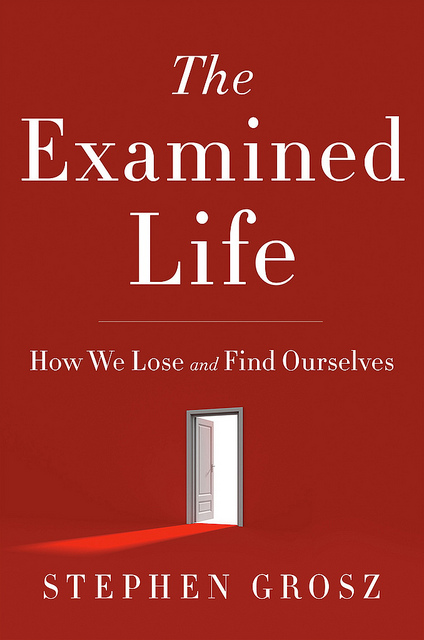I didn’t expect a collection of stories about the inner struggles of psychoanalysis patients to be so much like a detective novel. Yet, in The Examined Life parallels abound.
Clues are uncovered slowly in each chapter and a mystery unfolds. Hidden motivations are unearthed by identifying the meaningful in the mundane. The skillful narrator walks the reader through his ruminative process of making sense of the clues. A truth is revealed that appears to have been there are along.
Psychoanalyst Stephen Grosz has penchant for storytelling. He knows when to showcase his professional proficiencies and when to let the tale tell itself. The truth, after all, is somewhere in-between.
What was your motivation in embarking on this project?
I am sixty. I have a ten-year-old daughter and a seven-year-old son. My father had two heart attacks by the time he was my age, and my mother died when she was sixty-four. If I’m not here when my children are teenagers or young adults, I thought about what I want them to know.
The thirty-one stories in The Examined Life address what I think of as some of life’s biggest problems — problems we all face. More than that, I wanted to portray a way of thinking, a disposition towards oneself and the world that might be useful to them and others. Also, psychoanalysis requires time and money, and many people won’t be able to afford it. I wanted to set down some of the important things I’ve learned in a way that may be helpful to those who are unable to have psychoanalysis or therapy.
Given that you have a twenty-five-year history to draw from, why did you choose to include these particular stories?
I chose these stories because they have a kind of urgency, and I felt I had something to say about these fundamental life issues. My patients had taught me something that I wanted to get down on paper. Of course, I also write with my patients’ privacy in mind. Confidentiality plays an important role in what I choose to write about, and how I write.
In some ways, The Examined Life demystifies psychoanalysis, which has become a part of popular culture — and not always in an accurate or respectable way. How did this influence the way you told these stories?
Psychoanalysis has become something of a joke in our culture. In the book, I try to set all that aside and just give a simple picture of what psychoanalysis really is — and what actually happens between an analyst and patient.
The truth is, the people who come to psychoanalysis are in pain, and usually part of the pain is that they can’t articulate it well. They don’t have a way of telling their story. The author Karen Blixen said, “All sorrows can be borne if you put them into a story or tell a story about them.” But what if a person can’t tell a story about their sorrows? What if the story tells them?
In my work I try to hear the story my patient cannot tell and then to help them to tell it. To me, all the highfalutin psychoanalytic language — which is not in my book — is a diversion from the directness of our speech. So, I try to tell stories I think are important as plainly and directly as possible.
Change is a recurring theme in the book. People come to you because they desire change, because they have experienced an unanticipated or undesired change. People resist change. People succeed and don’t succeed in making changes in their lives. Does hearing other people’s stories of change make it easier to do so ourselves?
“I want to change, but not if it means changing,” a patient once said to me in complete innocence. Change is difficult for many reasons. One reason people resist change is that all change requires loss. This can be hard to see, and even harder to accept. But there are many things that help us to change. I believe one of those things is hearing other people’s stories.
Some stories touch our heart. A good story can help us to think differently. Cheryl Strayed’s Wild, Katherine Boo’s Behind the Beautiful Forevers, Andrew Solomon’s Far From the Tree — these recent books made me think differently. If you are able to think in a new way, you can act in a new way. Thinking differently is the first step towards change.
Mandy Van Deven Mandy Van Deven was previously In The Fray’s managing editor. Site: mandyvandeven.com | Twitter: @mandyvandeven
- Follow us on Twitter: @inthefray
- Comment on stories or like us on Facebook
- Subscribe to our free email newsletter
- Send us your writing, photography, or artwork
- Republish our Creative Commons-licensed content


